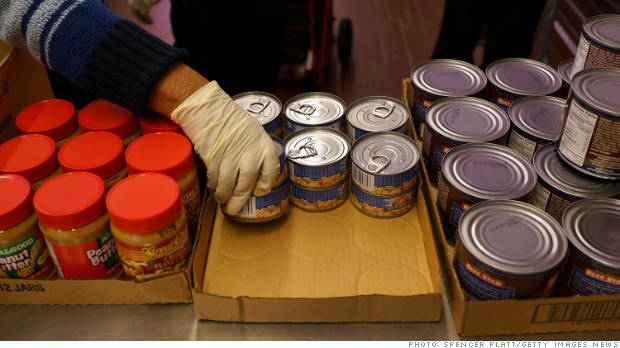The Center on Budget and Policy Priorities has estimated around one million of the population in the United States will be losing their food stamp benefits as the economy starts to get better. This scenario urges the Congress to modify a federal law a person's limits on how long one is to receive the food stamp benefit while they remain unemployed.
The Supplemental Nutrition Assistance Program, or SNAP, the current policy is that an single adult without a child is privileged to receive food stamps for maximum of three months unless they are employed or is currently on a job training program of at least 20 hours a week, CNN reported.
The three months period of support originated back in the 1990s as an agreement between lawmakers. Those who were in favor to give beneficiaries an incentive to find work and those who just wanted a "safety net."
However, when recession strruck the U.S., many of the states gave the waiver off the three months rule due to the sudden surge of unemployment.
Currently, the U.S. economy is starting to improve. Many of the states are beginning to feel it which raises the thought that the three-month cap will start to kick again, and 42 states still implement the partial or full waivers on the cap based on the reports from the Agriculture Department which was shared to SNAP.
Several states like Kansas, Oklahoma, and Ohio have already put back the three-month limit ahead of the scheduled plan. This brought a sharp drop in local caseloads.
Report says that, to lose this food stamp benefits will likely cause a major kick on these unemployed Americans who rely mostly on SNAP to meet their basic needs. The $150 to $200 per person benefit each month is such a great loss to people belonging below the poverty line.
The Center estimates about one million adults will be greatly affected, and with this said, the local government of affected areas should start to get ready for an increase in demands for homeless shelters and food banks.



























